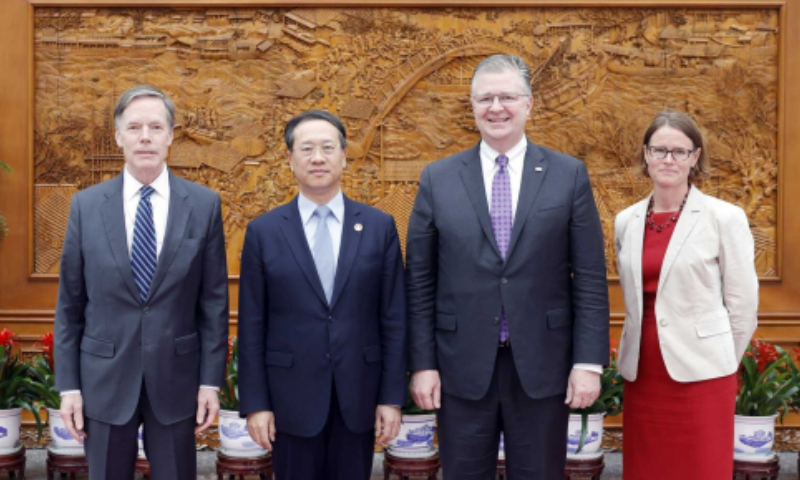Chinese FM expresses solemn position regarding US' actions to advance 'Indo-Pacific Strategy' targeting China, urging the US to stop bloc confrontation

The Chinese Foreign Ministry blasted the US' recent actions to advance the "Indo-Pacific Strategy" targeting China, as well as the country's wrongful statements and actions in China's surrounding areas, especially its attempts to form a small clique with Japan and the Philippines and disrupt the situation in the South China Sea. China again urged the US not to engage in bloc confrontation or disrupt peace and stability in the Asia-Pacific region.
Chinese Vice Foreign Minister Ma Zhaoxu on Monday met US Ambassador to China Nicholas Burns, US Assistant Secretary of State for East Asian and Pacific Affairs Daniel Kritenbrink, and Sarah Beran, White House National Security Council's senior director for China affairs, in Beijing. Yang Tao, director-general of the Department of North American and Oceanian Affairs of the Chinese Foreign Ministry, held talks with the US diplomats, according to a report from CGTN.
In accordance with the important consensus reached by the leaders of both countries during their previous meeting in San Francisco and their recent phone call, both sides engaged in candid, in-depth, and constructive communication on promoting dialogue and cooperation in various fields between China and the US, as well as on properly managing differences.
The two sides exchanged views on international and regional hotspot issues such as the Middle East, Ukraine, the Korean Peninsula nuclear issue, and unanimously agreed to continue implementing the San Francisco vision, maintaining exchanges at all levels, and further stabilizing China-US relations.
During the meeting, the Chinese side expressed its solemn position regarding the US' recent actions to advance the "Indo-Pacific Strategy" targeting China, and US' wrongful statements and activities in China's surrounding areas, especially its attempts to form a small clique with Japan and the Philippines, and disrupt the situation in the South China Sea. China urged the US not to engage in bloc confrontation or disrupt peace and stability in the Asia-Pacific region.
China also clarified its stance on the Taiwan question, as well as issues including economic, trade, technology, and cultural exchanges. China urged the US to stop interfering in China's internal affairs and obstructing China's development, halt unjustified sanctions against Chinese companies, and cease suppression of China's economic, trade, and technological sectors.